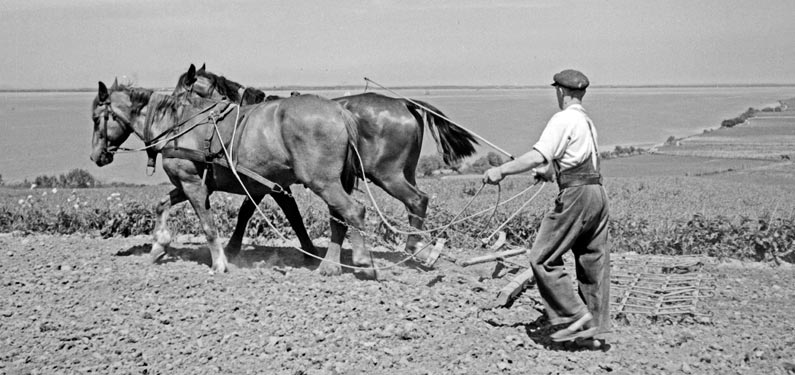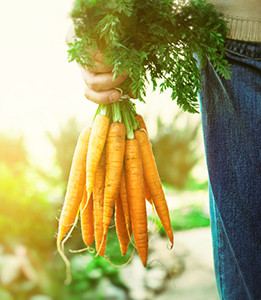
Request a Free Consultation
Call Today!
(717) 665-2283Field Crop/Vegetable Farm Insurance
 Field crop and vegetable farms have different loss exposures present than farmers who practice animal husbandry. While there may not be livestock to cover on a Farm Personal Property list, other significant property losses can occur and need to be insured.
Field crop and vegetable farms have different loss exposures present than farmers who practice animal husbandry. While there may not be livestock to cover on a Farm Personal Property list, other significant property losses can occur and need to be insured.
High-value implements may need to be specifically scheduled on the policy along with harvested crop inventory. Peak season endorsements become a huge cost savings mechanism for crop and vegetable farmers.
Coverage for Farm Vehicles
These farmers may also have increased road exposure because they will be traveling with trucks, tractors, and harvesters down the road on a regular basis. A Commercial Auto policy often needs to be written for these types of farms as oftentimes they have several vehicles used in harvesting that are too large to be covered under a personal auto policy.
Scheduled Farm Personal Property
It is important for a crop or vegetable farmer to keep in mind that items like combines and forage harvesters need to be added to the Scheduled Farm Personal Property List. These items, because of their high value, cannot be placed on a Blanket Farm Personal Property Inventory List. A farmer insuring a $300,000 combine within their Blanket FPP could have issues at claim time.
Pollution Liability Insurance
Beyond an increase in road travel with their farm equipment, crop farmers may have a significant pollution risk if they do their own spraying and fertilizing. Pollution Liability insurance options should be discussed when purchasing Crop Farm insurance. It is extremely important that the crop farmer accounts for all of their acreage, even rented ground, on their policy in order to extend liability to these locations.
Protection for Equipment and Harvested Crops
Open Perils Machinery Endorsements should be considered as an absolute necessity for the crop and vegetable farmer. This provides protection for intake of foreign objects, which is a significant risk to the crop farmer. Additionally, coverage for harvested crops should be discussed.
Covering your farm product is an additional income protection for a crop and vegetable farmer. Vegetable farmers may have cold storage units that can be scheduled and covered for Equipment Breakdown and the crop inside covered for spoilage. This provides protection from an unexpected breakdown of pumps or compressors, which could ultimately lead to the loss of crop and income.
Insuring Your Greenhouse Structures
Many vegetable farmers have greenhouses or high tunnels to grow their crops earlier or later in the year than would otherwise be possible. Greenhouse structures can be covered, but the vegetable farmer insuring their greenhouse should be aware of potential coverage limitations. Most companies will not provide coverage for the covering of the structure.
The only insurable part of the greenhouse is the hoops or support system and fixed equipment within it, if present. You may also take note that special deductibles may apply to certain perils, or causes of loss, like hail. Other companies may only be willing to insure these structures with Basic Perils. Determining what coverage is available for your greenhouse structures helps in making educated insurance decisions at the inception of your policy.

Roadside or Off-Premises Stand
Another common occurrence on a vegetable farm is the presence of a roadside stand or, an off-premises farm market location. Both of these should be discussed in detail with your agent. The off-premises farmer’s market vendor stands present a greater underwriting risk and need to be underwritten with care. Market locations need to be added to the policy in order to extend premises liability.
The products liability portion of your Farmowners Policy should cover the sale of your vegetables. However, the company underwriter will likely need to know the annual gross receipts you realize from your farmer’s market locations. They may also ask questions about what you sell and if any of your crops are converted to processed goods.
Field Crop and Vegetable Farm Insurance Includes:
- Coverage for your home dwelling
- Coverage for the contents of your home
- Coverage for additional rental dwellings including Loss of Rents coverage
- Coverage for your barns and greenhouses- including equipment, silos, grain bins, and other agricultural buildings
- Coverage for your farm equipment including coverage for intake of foreign objects
- Coverage for cold storage units
- Coverage for your farm products- grain, feed, seed, fertilizer, vegetables, etc.
- Peak Season Inventory Endorsements
- Coverage for equipment breakdown of fixed equipment, motors, pumps, etc.
- Coverage for loss of farming income due to a covered property claim
- Coverage for extra farming expense incurred after a covered loss
- Pollution Liability
- Products Liability
- Personal Injury Liability
- General Liability
- Premises Liability
- ATV/Unlicensed Farm Truck Liability
- Liability for Incidental Business Pursuits other than farming (Farm Market Stands, Processed Goods, etc.)
Other Common Endorsements Include:
- Identity Theft Expense Coverage
- Backup of Sewers and Drains
Frequently Asked Questions
-
Can I get coverage for my field crops within my Crop Farm Insurance Policy?
You can cover your crops after they are harvested on your Farmowners Insurance Policy. Standing field crops, including vegetables, need to be covered by purchasing a Crop Insurance Policy. To learn more about how to purchase Crop Insurance, see our Crop Insurance page.
-
I hire a custom harvester, do I need a Worker’s Compensation Insurance Policy?
Custom Harvesters paid on a 1099 basis are usually considered to be independent contractors. There are several important criteria that need to be met in order for an IC to maintain their status and not be considered as one of your employees. At the very least, you should be paying them by the job, not the hour. See our Farm Worker’s Compensation Insurance Page for more details about the Worker’s Compensation Statute in the State of Pennsylvania or go to our Blog section and watch our series of videos about Worker’s Compensation compliance presented by Denise Elliot, ESQ., a local Worker’s Compensation attorney.
-
I go to a Farm Market and the managing company is requiring me to add them as an Additional Insured, should I do it?
In most cases, the only way you are going to be able to set up and sell at the market is if you comply with their requirements and add them as an additionally insured party on your Farmowners Insurance Policy. Their insurance agent, as well as their lawyer, is more than likely recommending to them to make it a requirement of their vendor partners. Likewise, if you the market is in a large city, the municipality will require the same thing.
Additional Insured endorsements are easy to add to your Farmowners Insurance policy, you just need to let your agent know so you can stay in compliance and continue to sell at your market locations. Be sure to provide the Market address so it can be added to your policy for premises liability reasons.
You should never offer to add a party to your policy as an additional insured. Adding additional insureds is not a benefit to you, but it may be necessary. In the event of a loss caused by your operations in which the manager of the farm market was also named, they will share in your liability limit as their primary insurance. If they became responsible for paying a lawsuit settlement that exceeded half of your liability limit, their policy will provide excess coverage for them, but not you.
-
Other farmers store their grain in my bins, does my insurance cover this?
You should have a discussion about whether or not you need a Property of Others in your Care, Custody, or Control endorsement. The other farmer may have coverage for his farm products. Clear documentation should be available in order make loss settlement easier.
If you buy the grain from the other farmer, and it is stored in your bins, that can be covered under your Farm Personal Property Inventory- Farm Products. You should be aware of the value you have in your inventory versus the insured value to avoid possible coinsurance pitfalls at claim settlement.
-
I bought a brand new tractor, can I get replacement cost coverage on it?
Certain farmowners insurance companies will provide replacement cost on new equipment. This will usually be discontinued after the equipment reaches a certain age. There is specific criteria that must be met in order for the policy to pay replacement cost. Because used farm equipment is currently maintaining value fairly well, a loss settled at actual cash value for a piece of equipment on a Blanket Farm Inventory List would allow you replace yours with a tractor of like kind and quality. Blanket FPP provides advantages at the time of loss because it does not assign a specific value to individual pieces of equipment, but instead values the farmer’s whole inventory.
Example: If a farmer has a John Deere 4440 scheduled on his policy for $25,000, the most he will get to replace that tractor is $25,000, even if the same model with the same hours costs $30,000 at an implement dealer. If the same farmer has $100,000 of total Farm Personal Property Inventory insured on a Blanket basis and loses the JD4440 in a fire, he can receive $30,000 to replace his tractor as long as his total inventory amount is not less than 80% of the limit of FPP insurance on the policy. In this way, Blanket Farm Personal Property can keep the top “open” when it comes to determining the actual cash value of a covered piece of equipment. For more information, read our article about blanket farm personal property.

